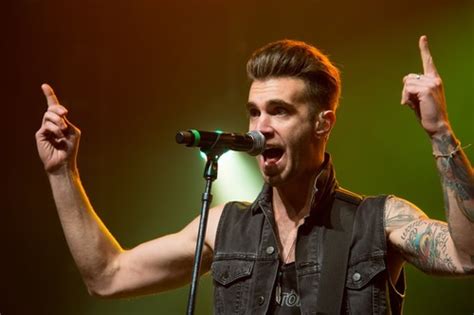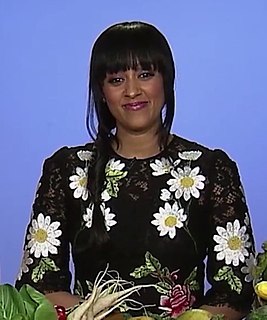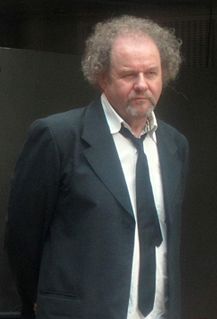A Quote by Mike Rich
We were interviewing an author, and we started talking about how so many of them - Salinger, Shaw, Fitzgerald - were really an odd bunch. They put a barrier around themselves, and not many people got through it. This was the spark that I really latched onto - someone who could break through the barrier. Of course [FINDING FORRESTER] really began to take shape when I began to wonder, what if it was a young person?
Related Quotes
My love for cooking began when I was young. Because my parents were in the army, they were both really busy. A lot of times I'd have to cook for the family; I'd rotate with my siblings. It started out as a chore, but as I got older, my mom started to see that I was really good at it. I became her sous chef.
My two best friends have gone through break-ups that were really hard, and I remember thinking, 'How could this be so hard and important to them?' Literally for months they were really upset and they couldn't get over it. I had no idea what it was like. And now that I've been through it, I totally understand.
I was really interested in the fact that blacks have high blood pressure, heart disease, and diabetes at a higher percentage than the rest of the population. That didn't stay very aggressively in the book, but that's how it started. I began to document these moments as support for this other thing I was thinking about, and then the moments themselves began to take over.
With the Holocaust - I wonder if a lot of Jewish writers of my generation have felt this way - it feels really intimidating to approach it. I feel like so many writers who have either lived through it firsthand or were part of that generation where they were closer to the people who were in it have written so beautifully about it, so there's no lack of great books about it
You almost have to step outside yourself and look at you as if you were someone else you really care about and really want to protect. Would you let someone take advantage of that person? Would you let someone use that person you really care about? Or would you speak up for them? If it was someone else you care about, you'd say something. I know you would. Okay, now put yourself back in that body. That person is you. Stand up and tell 'em, "Enough!
I think that it's extraordinarily important that we in computer science keep fun in computing. When it started out, it was an awful lot of fun. Of course, the paying customers got shafted every now and then, and after a while we began to take their complaints seriously. We began to feel as if we really were responsible for the successful, error-free perfect use of these machines. I don't think we are. I think we're responsible for stretching them, setting them off in new directions, and keeping fun in the house. I hope the field of computer science never loses its sense of fun.
And I thought about how many people have loved those songs. And how many people got through a lot of bad times because of those songs. And how many people enjoyed good times with those songs. And how much those songs really mean. I think it would be great to have written one of those songs. I bet if I wrote one of them, I would be very proud. I hope the people who wrote those songs are happy. I hope they feel it's enough. I really do because they've made me happy. And I'm only one person.
I saw what the Depression was doing to my students. Often they could get no jobs, or jobs which were wholly inadequate. And through them, I began to understand how deeply political and economic events could affect men's lives. I began to feel the need to participate more fully in the life of the community.
It just struck me as really odd that there were all of these conversations going on about what young women were up to. Were young women having too much sex? Were young women politically apathetic? Are young women socially engaged or not? And whenever these conversations were happening, they were mostly happening by older women and by older feminists. And maybe there would be a younger woman quoted every once in a while, but we weren't really a central part of that conversation. We weren't really being allowed to speak on our own behalf.
Take the great example of the four-minute mile. One guy breaks it, then all of a sudden everyone breaks it. And they break it in such a short period of time that it can't be because they were training harder. It's purely that it was a psychological barrier, and someone had to show them that they could do it.






































